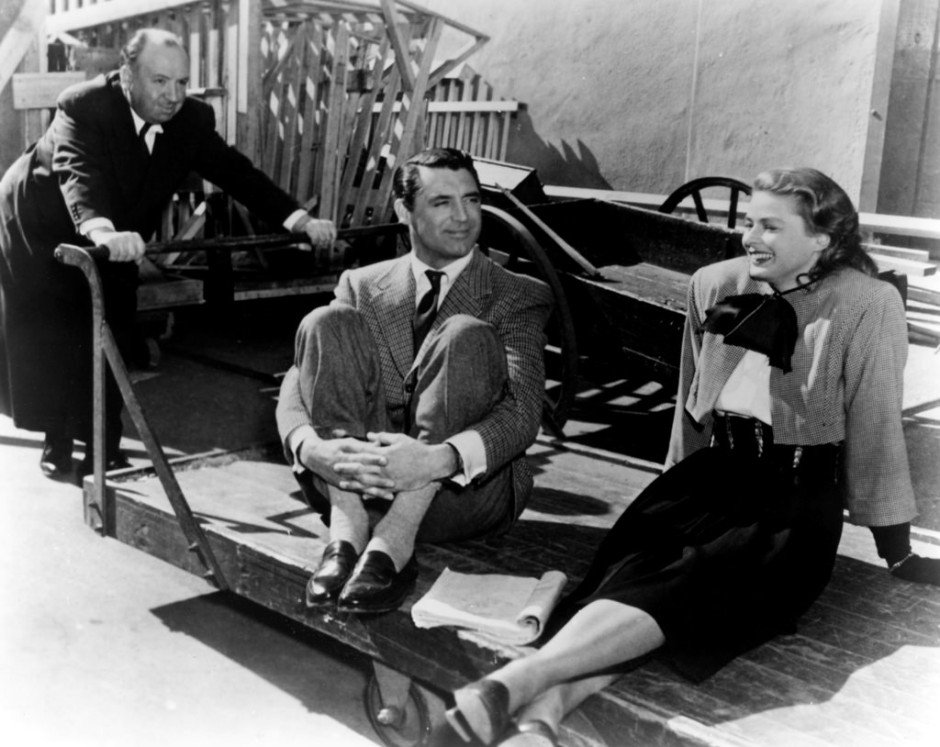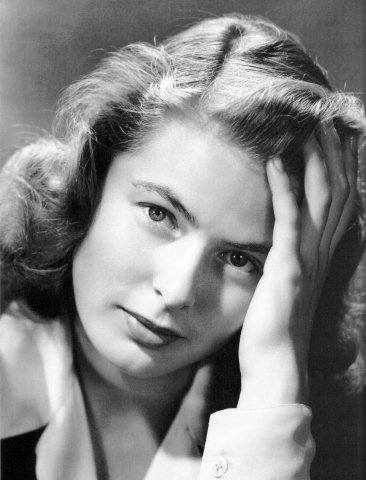
Ingrid Bergman’s radiant beauty shines through her films, especially those made in the early phase of her lengthy, distinguished career.
With her svelte figure, high cheek bones, wavy hair, full lips, bright toothy smile and slightly exotic Swedish accent, she’s a compelling cinematic figure.
Wholesome yet alluring, Bergman rose to fame in Intermezzo, a sappy 1936 Swedish film that caught the attention of the famous Hollywood producer David Selznick. He brought her to Los Angeles in 1939 to star in an English remake of it, and she never looked back.
During the 1940s, Bergman appeared in a succession of hit movies, from Casablanca and For Whom the Bells Toll to Gaslight and Notorious. Bergman left Hollywood in a cloud of scandal following her messy divorce from a Swedish dentist and her marriage to the Italian filmmaker Roberto Rossellini.
Returning to the United States after this disruptive interregnum, she reestablished herself in Hollywood and appeared in such films as Anastasia and Murder on the Orient Express.
During her star-studded career, she won three Academy Awards and four Golden Globes. In her last movie, A Woman Called Golda, released in 1982, she portrayed Golda Meir, the former prime minister of Israel.
Bergman was born in Stockholm 100 years ago this month, 10 years after the birth of another Swedish glamour girl, Greta Garbo. In her honor, the Toronto International Film Festival is presenting a retrospective of Bergman’s films. Notorious: Celebrating the Ingrid Bergman Centenary runs from August 22 to September 6 at the TIFF Bell Lightbox.
Two movies, Notorious and Spellbound, both directed by Alfred Hitchcock and written by Ben Hecht, showcase her talents.
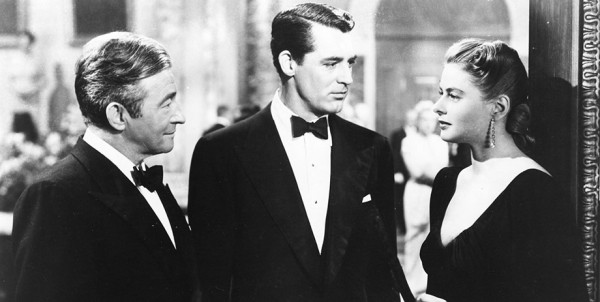
A 1946 espionage thriller set in Miami and Rio de Janeiro, Notorious (August 23) was obviously influenced by World War II, which had just ended.
Alicia Huberman (Bergman) is a German American whose father has been convicted of treason and sentenced to 25 years in jail. Devlin (Cary Grant), a U.S. intelligence agent, enters the picture as he tries to recruit her as a spy. Her mission is to gather information about a renegade Nazi in Rio who may be up to no good.
“I don’t go for patriotism or patriots,” she says curtly, trying to brush off Devlin. “Good times, that’s what I want.”
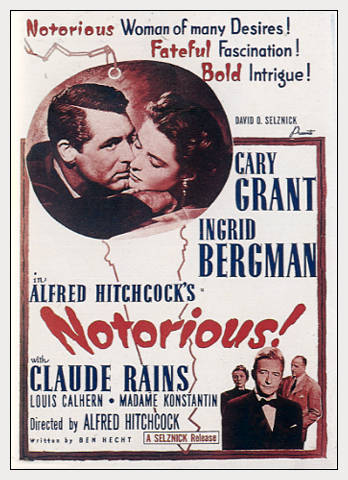
Huberman is not what she seems to be. Beneath her hard-boiled exterior beats the heart of an American patriot.
And she likes Devlin, whose dark, handsome looks might make most women swoon. “You’re quite a boy,” she coos, cradling a cold drink.
She and Devlin fly to Rio, whose scenic backdrops of Sugar Loaf and Copacabana add a touch of realism and luster to the film. As they stand on a hotel balcony with a sweeping view of the ocean, Huberman says, “It’s nice out here. Let’s not go out for dinner.” By then, the pair are lovers with better things to do than to leave their room for a meal.
Huberman’s task is to contact Alex Sebastian (Claude Rains), a German scientist and Nazi loyalist whose activities have aroused suspicion. Sebastian, having known her and her father before the war and having developed had a crush on her, welcomes Huberman with open arms. “You’re so lovely, he says.
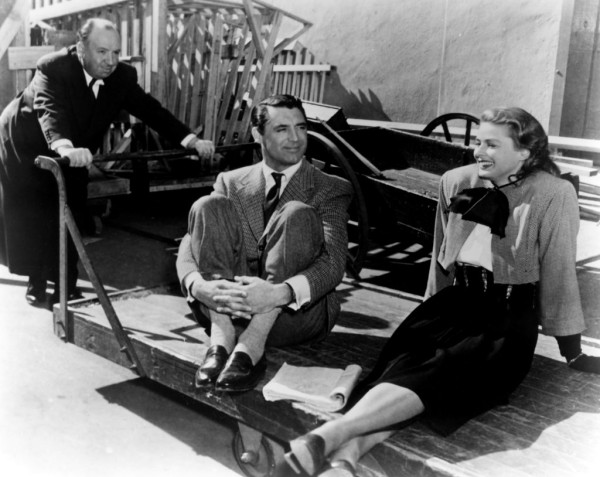
Before long, he proposes marriage, a prospect that Sebastian’s wary mother (Madame Konstantin) warns him against. In the line of duty, she accepts his proposal. Once she marries him and moves into his mansion, she and Devlin plan their next move.
Bergman is sultry and spunky, and the chemistry between her and Grant, debonair as always, works. The film crackles with a modicum of suspense but is overrated, like many oldies.
In Spellbound (August 27), released a year earlier, Bergman plays Constance Petersen, a psychiatrist who falls head over heels for Anthony Edwardes (Gregory Peck), the new administrator of the mental institution where she’s employed.
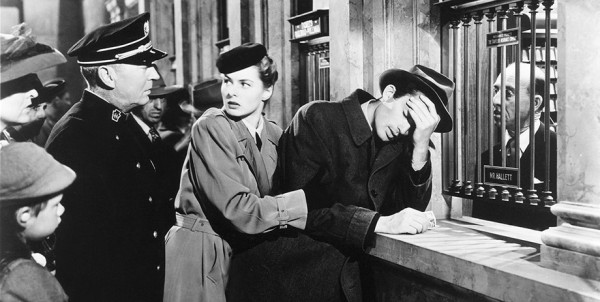
When first glimpsed sitting at a desk, Petersen is wearing prim eye glasses, in keeping with the seriousness of her personality and job. Once she removes the spectacles, she becomes something of a vamp. It’s a conceit Hitchcock is fond of and uses in subsequent movies.
Having been introduced to Edwardes — a specialist in guilt complex — Petersen gazes at him rapturously as Miklos Rozsa’s musical score swells. She’s smitten by the man, and the feeling is mutual. “You’re very lovely,” he says. “Don’t talk like that,” she replies, blushing with embarrassment. They embrace and kiss, sealing their romantic bond.
As she quickly discovers, something is amiss with Edwardes. He suffers from panic attacks and fainting spells. As it turns out, he’s confused about his identity. Is he an imposter? What is he hiding?
In this high-strung movie about murder and amnesia, shot in the film noir style typical of the period, Petersen tries to tease repressed memories from Edwardes. The inventive dream sequences, bound up with his recollections of the past, are inspired by the avant-garde painter Salvador Dali.
Bergman, smouldering as usual, acquits herself with aplomb. Peck, sleek and elegant, makes his presence keenly felt.
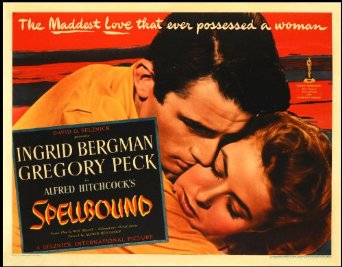
As might be expected of a film from this era, it’s sexist. “The mind of a woman in love operates on the lowest intellect,” says Petersen’s former teacher, in a cutting reference to her. Presumably, the comment raised no eyebrows in 1945. How times have changed.
http://tiff.net/summer2015-cinematheque/notorious-celebrating-the-ingrid-bergman-centenary.
